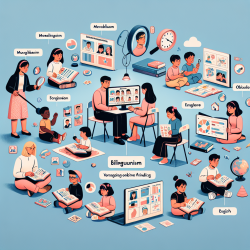Understanding the Impact of Adverse Childhood Experiences (ACEs)
Adverse Childhood Experiences (ACEs) have long been recognized as significant predictors of various health and behavioral outcomes in adulthood. A recent study titled "The role of adverse childhood experiences in risky behaviors, health care utilization, and generalized self-efficacy in the general adult Polish population" sheds light on the profound effects of ACEs. This research underscores the importance of recognizing and addressing these experiences in therapeutic settings, particularly for speech-language pathologists working with children.
Key Findings from the Study
The study involved 659 participants and explored the association between ACEs and six key outcomes: lifetime suicide attempt, self-mutilation, potential problem drinking, use of street drugs, visiting a psychologist/psychotherapist, and visiting a psychiatrist. Notably, an ACE score of four or more was associated with a significant increase in the likelihood of these outcomes. For instance, such a score was linked to a 10.8-fold increase in self-mutilation and a 3.26-fold increase in potential problem drinking.
Furthermore, the study found that ACEs explained 1.2% of the variability in generalized self-efficacy, a critical component of resilience and coping strategies. This suggests that ACEs can impair an individual's ability to handle stress and challenges, potentially affecting their communication and social skills.
Implications for Speech-Language Pathologists
For practitioners in speech-language pathology, these findings highlight the need for a trauma-informed approach when working with children. Understanding the potential impact of ACEs on a child's communication development is crucial. Here are some strategies to consider:
- Screening for ACEs: Incorporate questions about ACEs into initial assessments to better understand the child's background and potential challenges.
- Building Resilience: Focus on enhancing generalized self-efficacy by encouraging problem-solving skills and promoting positive communication experiences.
- Collaboration with Other Professionals: Work closely with psychologists and other healthcare providers to address the broader impacts of ACEs on the child's development.
- Family Involvement: Engage families in the therapeutic process to create a supportive environment that fosters recovery and growth.
Encouraging Further Research and Practice
While this study provides valuable insights, it also opens the door for further research. Speech-language pathologists are encouraged to explore how ACEs specifically affect language and communication development. Additionally, developing targeted interventions that address the unique needs of children with high ACE scores could significantly improve therapeutic outcomes.
To read the original research paper, please follow this link: The role of adverse childhood experiences in risky behaviors, health care utilization, and generalized self-efficacy in the general adult Polish population.










